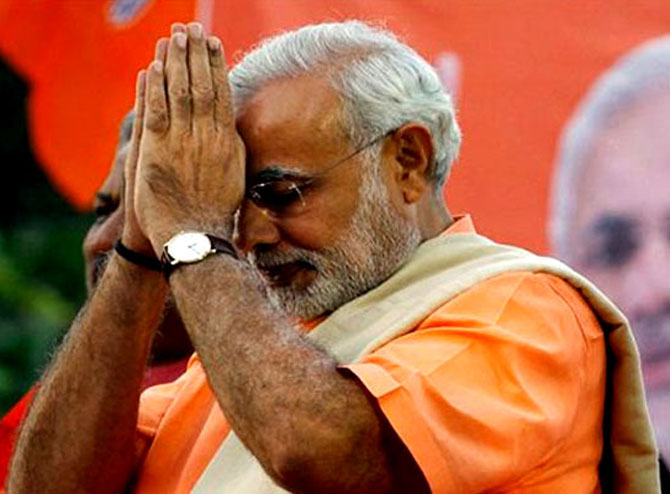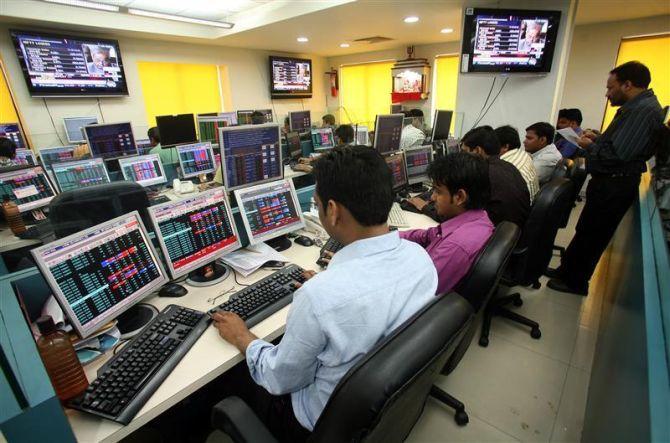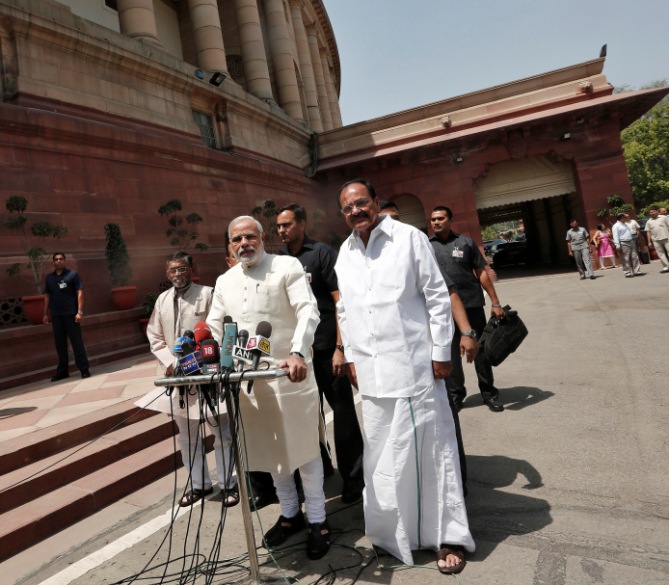 | « Back to article | Print this article |
30 days of Modi govt: Most boxes ticked on the Street
The stock market has added Rs 3.2 lakh crore (Rs 3.2 trillion) to investor wealth in the 30-odd days since Narendra Modi took over as Prime Minister, on hope of the new government initiating reforms to help the economy.
Modi took over as PM on May 26.
The BSE’s Sensex has risen 675.55 points or 2.7 per cent since, from 24,693.35 to 25,368.90.
Stocks outside the blue-chip universe have done even better.
The mid-cap index is up 5.7 per cent and the small-cap index by 9.3 per cent.
Deven Choksey, managing director and chief investment officer at K R Choksey Securities, said: “The government has lived up to expectations with a lot of policy initiatives, which suggests the environment will be better than before.
"It has moved to curb the fiscal deficit by raising railway fares. Its moves on sugar have provided clarity on sugar policy.”
Please click NEXT to read further. . .
30 days of Modi govt: Most boxes ticked on the Street
A Bank of America Merrill Lynch report said reforms are likely to result in investors being willing to pay a higher multiple for earnings.
“We continue to expect markets to re-rate, led by expectations of a surge in reforms and an economic recovery to follow in 12-18 months.
"Our year-end target values the market at 16.5x, a premium to long-term averages of 14.5x.
If we look at the 2009 elections, too, the markets traded at 16-18x for the rest of the year,” said the report dated June 24, authored by research analysts Jyotivardhan Jaipuria and Anand Kumar.
Please click NEXT to read further. . .
30 days of Modi govt: Most boxes ticked on the Street
Ten of the 12 sectoral indices have gained since Modi took over. Among the major gainers is the health care sector, up 7.8 per cent.
Capital goods is up 7.5 per cent and information technology by seven per cent. Indices tracking the fast moving consumer goods and power sectors are down 2.2 per cent and 1.7 per cent, respectively.
A Deutsche Bank India Equity Strategy report, authored by research analysts Abhay Laijawala and Abhishek Saraf, said the moves so far suggest better days ahead.
“Recent bold measures by the government on food inflation and railway tariff (rate) hikes illustrate the Modi administration’s resolve to address India’s macroeconomic imbalances and make economic recovery the cornerstone of its political strategy,” said the report dated June 23.
Please click NEXT to read further. . .
30 days of Modi govt: Most boxes ticked on the Street
"We have already seen companies coming to primary markets and raising $700 million in the past three weeks.
"We are likely to see more companies announce capital raising plans in coming months,” added the BAML report.
Manish Sonthalia, senior vice-president at Motilal Oswal Asset Management, said the market would keenly watch for announcements in the budget, the first major event for the new government.
Many government statements signalling intent on various reforms are expected to come through in the budget, he said.
He said there were expectations on allowing foreign direct investment in a number of sectors and that the government would move to raise resources while cutting fiscal deficit.
Poor rainfall may affect agricultural growth this year.
The government could incentivize manufacturing so that the sector could support growth, he said.




